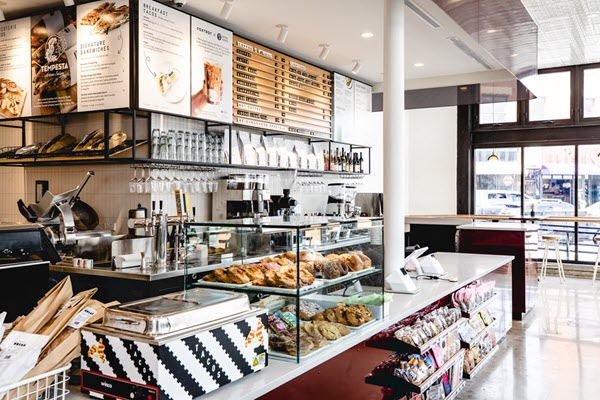Hear the Headlines
| Timely Tea Delivery Faces Troubled Waters
| Tea is Thriving in the Convenience Channel
| Iran Tea Production Increases 25 Percent
India Tea Price Watch
Assam’s annual floods have arrived this week with 16 districts affected. India’s Ministry of Commerce also suspended seven sections of the Tea Act, 1953. It appears several reforms are underway to lift regulations, including the recent relaxation of norms to obtain export and distribution licenses. – Aravinda Anantharaman
Features
This week Tea Biz puts Burmese chefs in the spotlight for their culinary contributions to tea.
… and then we travel to London where Unilever unveiled four guiding principles of regenerative agriculture a topic currently trending in tea.

Regenerative Agiculture
By Dan Bolton
Can a world that has already eroded a third of the planet’s soils feed a population of 10 billion without intensive agricultural practices that rely on heavy inputs of fertilizer, herbicides, and pesticides that sustain monoculture farming?
To answer this question, the Tea Biz Podcast and Blog is undertaking a series of interviews with thought-leaders in tea from organizations such as the Rainforest Alliance, growers in Sri Lanka, where a nationwide ban on the import and manufacture of plant chemicals was instituted in May; and with multinationals like Unilever, a company with extensive tea holdings that recently unveiled its basic principals of regenerative agriculture. Read more…
- Next in the series is a conversation with the Rainforest Alliance on how regenerative agriculture differs from sustainable farming.
Listen to the Interview

Tea Leaf Cuisine
By Aravinda Anantharaman
Pickled tea leaves may sound a bit out of the ordinary but not for Southeast Asian chefs. Burma, now known as Myanmar, is an ancient crossroads influenced by the cuisine of bordering Bangladesh, China, Thailand, and Laos. It is here that laphet has become a national dish that is now finding its way to US and European consumers as branded packaged goods. Learn more…
Listen to the review

Timely Tea Delivery Faces Troubled Waters
By Dan Bolton
The disruption of global supply chains is getting worse. Container vessel reliability for tea shipments crossing the Pacific continued to decline this summer as prices reached new heights. The World Container Index for eight East-West routes rose to a composite cost of $9,613 for the week of August 19 – up 360% compared to the same period last year. Consignments of tea shipped from Shanghai to Rotterdam increased 659% to $13,698 last week. Sobhanadri Jonnalagadda at Spisys Ltd. in Telangana, India, reports that the cost of booking a container destined for Hamburg from Hyderabad increased from £3000 to £9000.
Port congestion, backlogs at container terminals locked down to prevent the spread of the coronavirus, and rapidly increased volume dashed hopes for a return to normalcy until next spring. Logistics costs considered manageable by tea wholesalers early this year are now seen as out of control. Inflation is a growing concern, but the unpredictability of delivery dates is causing far greater problems.
Green tea exporter Zhejiang Tea Group’s US operation, Firsd Tea, advises tea buyers to calculate projected inventory needs for at least six months and consider adding 20% to projected volumes to avoid out-of-stock conditions and transportation delays.
This week there were a record 44 container vessels trying to offload at Southern California ports, an all-time high. And ports are getting busier as the holidays grow near. Imports in TEUs are approaching 550,000 per month at Los Angeles area ports, far exceeding totals for the same January through July period during the past four years.
On arrival shortages of dockworkers, crane operators, warehouse staff and qualified truckers cause further delays. Driver shortages are at all-time highs forcing companies to offer incentives. Qualified drivers are now earning $27 per hour. FreightWaves reports that refrigerated carrier J.S. Helwig & Son increased pay 4 cents to 62-cents per mile for experienced drivers – that’s $1240 for a 2,000-mile round trip. New hires earn 50 cents per mile and a $1000 signing bonus.
Biz Insight – The likelihood of a ship arriving on time was better than 80% in 2019 is now “hovering around 40%”, according to logistics analysts Sea-Intelligence. Add port and trucking delays and buyers this fall (whether they are consumers ordering Christmas tea online or wholesalers booking containers) — will experience delivery times extended by four to six weeks.

Tea is Thriving in the Convenience Channel
By Dan Bolton
Convenience outlets thrive at locations near where people live and in 2020 people stayed close to home.
In-store sales at US grab-and-go outlets rose for the 18th year in a row to $255 billion in 2020. Beverage sales are a top category, accounting for 20% of all sales. Ready-to-drink iced tea makes up about 5% 4.7% of that total, trailing soda, juice, energy drinks, and bottled water, according to the National Association of Convenience Stores (NACS).
New York-based Nielsen reports that overall, tea grew by 11.1% through April 2021. During that period liquid tea generated $3.4 billion in sales, RTD tea earned $142 million. Green tea sales were up 72.7% during the pandemic to $18.6 million, Nielsen.
In 2020 the dramatic decline in commuter trips, lockdowns and a consumer shift to grocery and home meals increased their spend but cut trips to convenience stores by more than 20%, according to NACS. The number of transactions declined 14% as basket sizes grew 18% compared to 2019.
The pandemic had a huge impact on self-serve beverages. Hot dispensed sales fell 33.4%, and cold dispensed beverages declined 7.9%, reflecting the drop in footfall amid stay-at-home orders and work-from-home schedules, writes NACS. In contrast, beer saw unprecedented growth accounting for 6.3% of total convenience store sales due to the closure of bars and restaurants (only 12.4% of 150,000 US convenience stores are licensed to sell beer).
Market research firm Technomic writes that US beverage sales overall declined 31% by volume in 2020. Spending declined 29% with cold dispensed beverage volume down 30%.
Biz Insight – Foxtrot markets, an upscale convenience chain is known for its 60-minute delivery guarantee “is the corner store reimagined” says venture capitalist David Barber. Stores feature locally baked treats, coffee, freshly brewed tea, and organic wine, craft beer, gifts, and everyday essentials.
CEO Mike LaVitola told Forbes that half of the company’s transactions occur online for delivery nationwide and half in-store. He said the company intends to introduce hyper-convenient 30-minute delivery and expand its selection of private-label convenience items in larger, 4,000 square foot stores.
The start-up has raised $65 million in January from the likes of former Whole Foods Market CEO Walter Robb and Momofuku restaurant founder David Chang. The chain, founded in 2014 in Chicago, currently has 13 locations with nine to open in 2021 and 50 within two years. New locations include Dallas and Washington DC and Austin, Tex., Boston, Miami, Los Angeles, and Houston.

Iran Tea Production is Up 25 Percent
Iran’s Tea Organization (ITO) reports a 25% increase in tea production so far this year and higher export numbers as well. During the first five months of the year, Iran harvested 114,445 metric tons of raw leaf, valued at 6.5 trillion rials (about $155 million US), according to ITO. The tea organization considers 51% of the harvest premium grade, down from 79% in 2020.
Iran is a net tea importer, No. 6 in the world, spending $236.3 million on tea in 2020, according to World’s Top Exports.
In recent years growers began exporting increasing quantities of tea. In 2020 4,000 metric tons of teas were shipped to 12 countries regionally including Azerbaijan, Afghanistan, and Iraq, India, Tajikistan, Turkmenistan, and Georgia as well as Canada, Australia, Spain, and the Czech Republic. In 2020 tea exports averaged 86 cents per kilo. Sales totaled $6.5 million, up 2.6% compared to 2019.
Iran’s tea industry employs 55,000 families cultivating tea on 70,000 acres [28,000 hectares].
— Dan Bolton
Upcoming Events
September 2021
Level Up, Virtual
September 29 | The Tea & Herbal Association of Canada will host a mid-year Meet-Up from 10 am to noon. Admission $55 (CAD) Members $50. Agenda | Register
Click to view more upcoming events.
Share this episode with your friends in tea.
https://teabiz.sounder.fm/episode/news-01212021
Subtext
Avoid the chaos of social media and start a conversation that matters. Subtext’s message-based platform lets you privately ask meaningful questions of the tea experts, academics and Tea Biz journalists reporting from the tea lands. You see their responses via SMS texts which are sent direct to your phone. Visit our website and subscribe to Subtext to instantly connect with the most connected people in tea.
Subscribe and receive Tea Biz weekly in your inbox.





